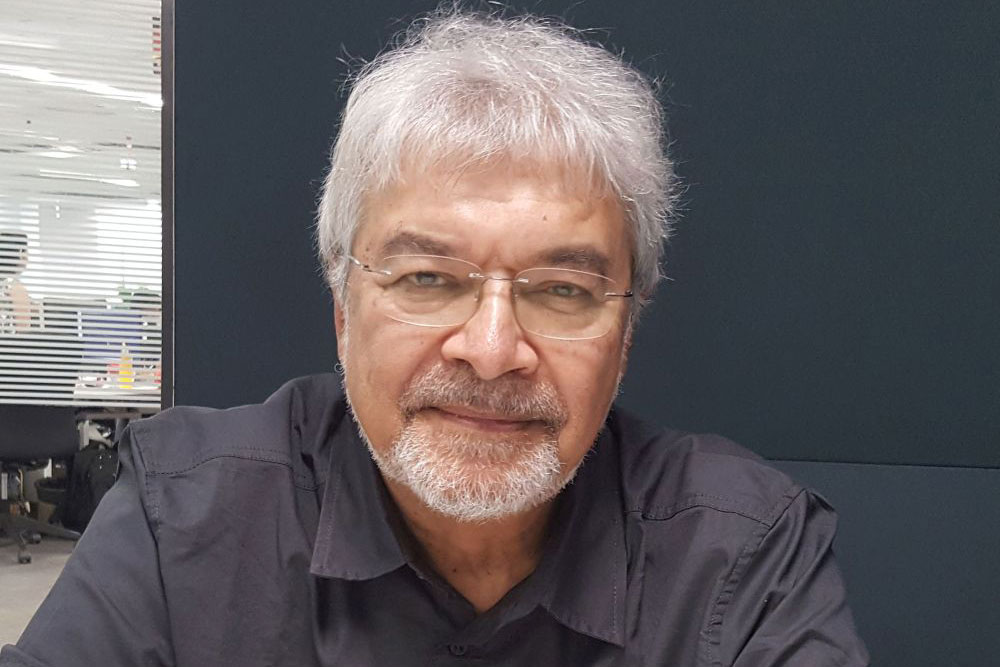


Master Class Vol. 12: Viswanathan Anand
This DVD allows you to learn from the example of one of the best players in the history of chess and from the explanations of the authors how to successfully organise your games strategically, and how to keep your opponent permanently under pressure.
Viswanathan Anand turned 50 years old last month, and will be in action at the board again beginning January 10th at the 82nd edition of the traditional Tata Steel Chess Tournament in Wijk aan Zee.
Frederic Friedel, the co-founder of ChessBase, met Anand in London for the first time when he was just 18 years old. Over the years Frederic has looked after or been close friends with World Champions Kasparov, Anand, Kramnik, Carlsen, as well as Judit Polgar and Hou Yifan, not to mention challengers Short, Leko and Caruana. The chance acquaintance with Anand in the late 80s soon grew into a close and lasting friendship. Anand visited Frederic at his home near Hamburg for no less than thirty-six times and became like part of his family. In a big video interview with IM Sagar Shah, Frederic speaks about how they met, how his friendship with Anand grew, his memory and speed, marriage, being an ever-humble role model and the revolution he created in Indian chess!
Master Class Vol. 12: Viswanathan Anand
This DVD allows you to learn from the example of one of the best players in the history of chess and from the explanations of the authors how to successfully organise your games strategically, and how to keep your opponent permanently under pressure.
Remembering Anand: a half-hour video interview with Frederic Friedel
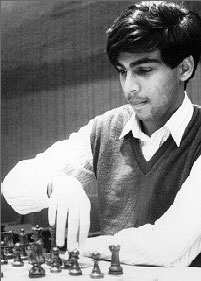 by Frederic Friedel
by Frederic Friedel
Many years ago we developed ChessBase and had this fledgling program which has just been released. I think it was 1986 or 1987, I was in London at a tournament showing this program to the chess players there and at some stage somebody came to me and said, "I would like to introduce you to a young player who wants to meet you". I met him and he was an Indian, a young boy. I spoke to him and then continued working and told him that I would catch up with him in a moment. And then, half an hour later, he came to me and said, "I have to leave now!". I was embarrassed to have kept him waiting like that, I apologized and we had a short but intense conversation. I asked him how strong he was and he replied something like 2480 or 2500. I was really taken aback! So this was Vishy, always very gentle and unassuming. He had to play his next event only a week after that. He confided that he couldn't afford to head back to India. I asked him, "So what do you do? Stay in a third class hotel?" He replied, "No, fourth class!" So I offered him to come and stay at my place instead near Hamburg. He politely took note of my offer before leaving.
A few months later I got a phone call from him, he asked me whether I was serious about inviting him to my place. I assured him that he could come. My family was surprised, my wife said,"You have invited a chess prodigy home for a week? Okay, let's see how that goes!" Then finally Vishy arrived and after only two or three hours with him the whole family was enchanted. They said, "He's such a nice boy! We want to keep him, he can visit us anytime!"

Vishy playing with Frederic's son Tommy! Their score: 29:1 (Tommy flagged once!)
So we were all enjoying ourselves with him, and then came the first problem, in the evening, during dinner: Vishy was a complete vegetarian and didn't eat anything — no egg, no cheese, no meat of course! We went into a panic, but somehow rustled up some vegetables that evening. And from the next day we started boiling vegetables. It was tasteless and we were terrible at it. But then we bought a book on South-Indian vegetarian cooking and began to prepare that kind of food for him. And we found it delicious. It was a problem solved!
We had just launched ChessBase at the time and Vishy sat with it in my study for hours. This was the first time I saw a grandmaster going through hundreds of games a day and enjoying himself immensely. He would come to the living room all excited and ask me to see some move that I would obviously not understand and then he would burst into laughter.
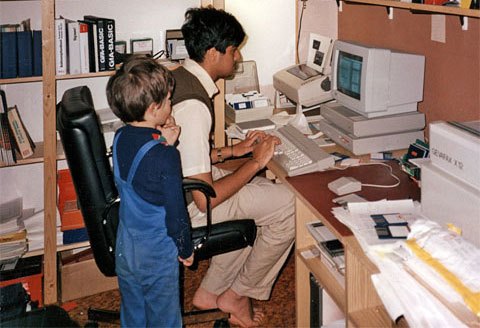
Vishy working with ChessBase 1, as Tommy looks on | Photo: Frederic Friedel archives
There's an anecdote that has remained with me over the years. One day at the breakfast, he sat at the table and said to me, "You know there are some errors in the database, some results are wrong or some games are repeated." I told him that this was raw data and it would be very helpful if he could keep track of errors he came across. The people in the office would then be able edit them. To my surprise, he immediately took a pen and paper and started jotting down the mistakes he had seen. He not only remembered the games but also their record numbers in the database. It was astounding how he could remember the game numbers of all the games that he had seen!
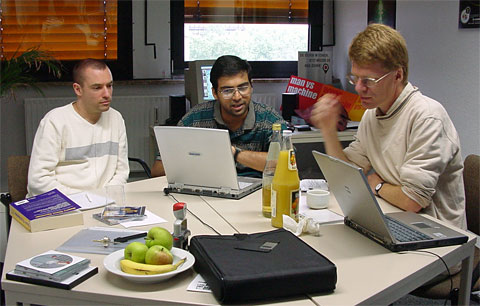
Vishy discussing possible improvements in the ChessBase software with Matthias Wüllenweber (right), co-founder and head programmer of ChessBase
The first DVD with videos from Anand's chess career reflects the very beginning of that career and goes as far as 1999. It starts with his memories of how he first learned chess and shows his first great games (including those from the 1984 WCh for juniors). The high point of his early developmental phase was the winning of the 1987 WCh for juniors. After that, things continue in quick succession: the first victories over Kasparov, WCh candidate in both the FIDE and PCA cycles and the high point of the WCh match against Kasparov in 1995.
Running time: 3:48 hours
Vishy was not only able to study and learn databases but he used to do it at an enormous speed, and retain everything. Just show him a position and within a few seconds he will understand it and tell you the correct line. One day I was with him at a tournament, and we were walking across the analysis room, where the players sit after the games and analyse with their opponents. He glanced at one of the positions there while walking by and said: "Aha, very nice. Rook to e8". The player of the white pieces followed us and asked whether he had been watching his game. This was Joel Benjamin, he couldn't believe that Vishy was able to find the move while just walking by! He was fast! At times he used to play entire games in just six to seven minutes. I used to tell Vishy to slow down and think about his moves, and sometimes he would obey, think for many many minutes — and then play the move he saw in the first seconds.
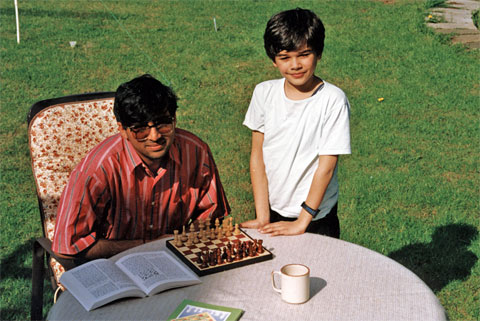
Vishy studying chess in Frederic's garden, with Tommy watching
I was absolutely sure that he would become the World Champion. He was so strong, he was right there at the top even without the systematic Soviet-style training. When Kasparov was eleven or twelve, or even younger, and they discovered that he was a super talent in chess, he immediately got two or three grandmasters who trained him. He got everything he needed to become the greatest player in history. But when they discovered that Vishy was was a very strong chess player his parents said. "Okay, you can go to the chess club, but first you must finish your homework." That was the difference. But still he made it almost to Kasparov's level.
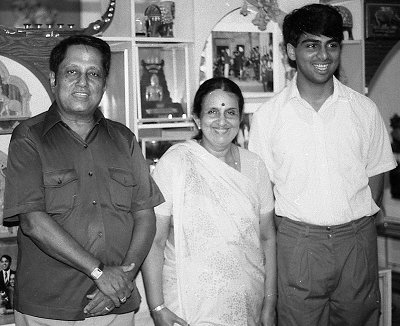
Anand with his parents Susheela and Viswanathan
He was extremely talented and I was convinced that he would one day become the World Champion. In fact, I goaded him into it. For a year, I kept calling him "Average," because he wasn't improving as quickly as I wanted him to. I used to tease him, and once put up a diagram of a horrible loss he had suffered in the house when he came to visit. He hasn't forgotten that! But I was goading him into realizing his full potential — and that he did. He became World Champion and he won five titles, and he has become the most charismatic person in Indian chess. From being just a friend, Vishy became a part of my family. He came thirty-six times to stay at my place, from anywhere between three or four days to a couple of weeks. I have proof of this in my guest book. My wife always says, "Don't exaggerate, he was there may be twenty times!". But no, over thirty times! And this was all very nice. We loved it and had a lot of fun. But then one day he got married and his rate of visiting us declined tremendously.
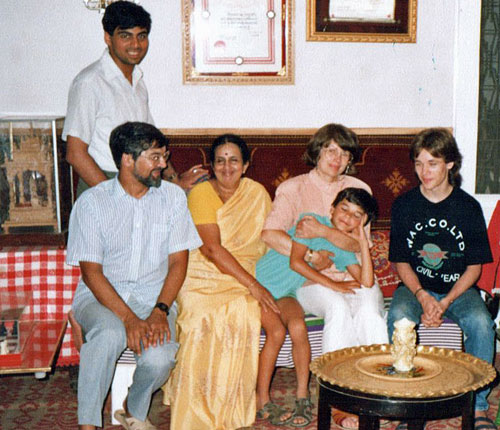
The Freidel family: Frederic, Ingrid, Tommy and Martin, with Susheela and Anand
Vishy Anand is one of the greatest chess talents of all times. On this DVD he speaks about his career, his views on chess, and presents the most beautiful and interesting games of his career.
Vishy invited me to come to Chennai for his wedding. And he invited a very good common friend of ours, who was a top editor at the Spiegel Magazine. I said, "I can't go to Chennai, for heaven's sake. It's halfway around the world". But my friend was very insistent. So he and his wife and I got into a plane and went to Chennai. It was a marriage which takes two or three days and we attended the whole ceremony. Unfortunately I didn't own a video camera back then, so we could not make any videos but we took a lot of photographs. It was extraordinary and there were hundreds of people, a thousand at the reception at least.
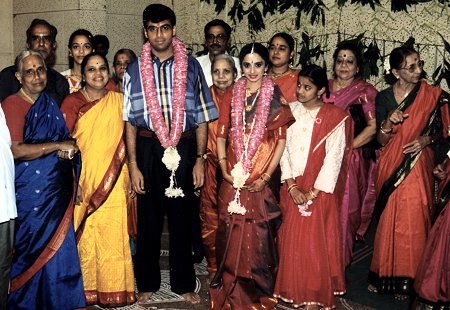
Anand and Aruna at the reception ceremony with relatives
We saw the entire ceremony. He married a young girl named Aruna. When Europeans ask them, "Was this an arranged marriage?", if they are there with me, I say, "No, it was a catalogue marriage!". To tease them, I claim that Vishy and I actually looked through a catalogue of prospective brides! That is a joke of course. Actually I was driving home from the office in Hamburg one day, and Vishy said to me,"Frederic, I am thinking of getting married". "Oh wow", I exclaimed, "It's the right time. Go ahead, who is she?" And he said: "I don't know!" Which almost made me crash the car! "You are not going to do one of those arranged marriage things are you?", I asked. He said, "Sure, why not?" I tried to talk him out of it — it was after all the end of twentieth century, he had to move into the modern world. But he insisted that it was okay, it was the best way.
Then one day I went to visit him and his family in Chennai, and on the way I stopped off in Bangalore where I was invited by an industrialist, a very influential person, for breakfast. I sat there for a South-Indian breakfast meal and he put his daughter opposite me. She was about 19 years old. After the meal I said to the father: "Congratulations, you have a great daughter. She is beautiful, she is intelligent. I had a marvellous time talking to her". The father was very pleased and handed me three cards. Later in Chennai I showed them to Vishy. "Why did he give me three cards?" I asked. He said it was "a marriage thing" and I was supposed to give them to young eligible bachelors I met!
Well, that evening we had dinner with Vishy and his family. He has a very traditional Brahmin family, and we were sitting there talking about marriage and things like that. I pulled out one of these cards and to Vishy's horror I gave it to his father! I didn't belong to the class who could do this. I am not a Brahmin, I am not even a Hindu. But anyway, Vishy's father took it and examined it carefully, before filing it away into a little index of his. I slowly came to realize that this was a really good system. Instead of trying to meet the person you are going to spend the rest of your life with in a bar or at a party, they find an ideal match. Then what happens is, they have an invitation where the girl comes with her entire family and visits the boy. The girl and the boy go into a room and drink a cup of tea together, and ten minutes later they come out. And at this stage both sides are able to say "No" without insulting the other side. Or if they are mutually satisfied they let negotiations continue (and the boy and girl get to share a Coke!). It is a very nuanced process and every single arranged marriage I have encountered so far has been tremendously successful!
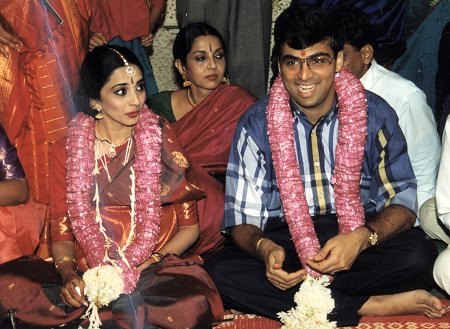
Vishy and Aruna during their marriage ceremony | Photo: Frederic Friedel archives
Aruna also became a part of my family. She is the loveliest person I have ever met in my life. She came to my place quite a few times and taught us the fine points of South-Indian cooking — and now we do it mainly for ourselves because Vishy doesn't visit us that frequently. He is engaged in other things, has a son, and lives permanently in Chennai.
Coming back to his wedding: we had a wonderful time and enjoyed all the elaborate ceremonies. There was also a grand dinner, and it was incredible. We came into this huge hall where there were long tables and benches around them. We climbed over the bench and sat there and my friend Hajo said, "Why are there leaves on the table?" I said, "That's your plate". He wasn't sure he was going to be able to do this! And after a while came a half-naked man with a big bucket and a huge spoon, dished out a large lump of rice that went 'plop' on each of our plates.
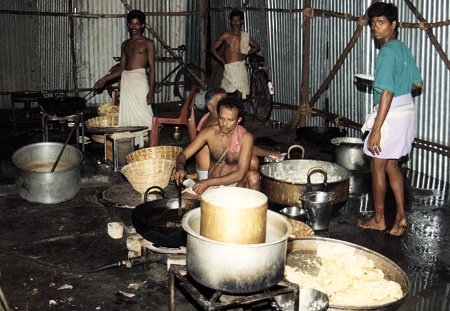
Meals being prepared for the wedding!

The food was served on banana leaves!
My friend Hajo and his wife Susanne were totally startled, they were reluctant to start eating with their hands, but slowly they joined in and got into the flow. By the end of the meal Hajo said to me, "Look Fred, if we hire three of them and fly them to Hamburg, we can get leaves from Africa and start a South-Indian restaurant of our own!" That's how easily you could initiate a North-German to South-Indian vegetarian food. I had a special time at Vishy's wedding and I wouldn't exchange that for anything.
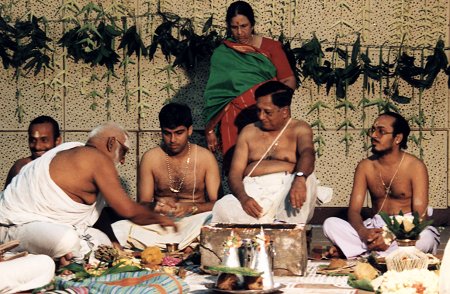
A traditional pre-wedding ceremony: Vishy with his father, as his mother looks on
Vishy is different from a number of other World Champions I have known, in that he is accessible and always very polite and civil. The others can be quite brash, even impolite or hostile. I must tell you that there's a reason for that. I have accompanied Garry [Kasparov] to dozens of events and PR shows. He is not the most friendly person to journalists and the reason I know is that he is accosted by twenty to thirty people per day, wherever he goes. Therefore he needs a manager, which now is his wife. I did this for him for a while. If there was anyone trying to approach him, I would intervene and then only if it was really important I would take that person to Garry, and Garry in that case would be absolutely charming, because he would know that it has a purpose. Vishy however is such a nice person that he can't resist. If someone talks to him, he talks back. He is kind, he doesn't need a manager to shield him from the public or filter the public. It is just his nature.
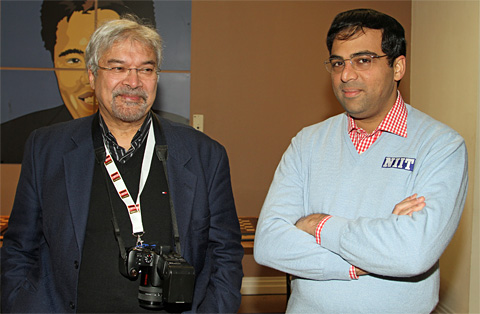
Fred the journalist with Vishy the chess player at one of the London Chess Classics!
Chess was invented in India. I believe that one person sat there and invented the game in one week, and it has become one of the greatest games in the history of mankind. It was invented somewhere in the north-west of India in the 6th century. And then the country sort of slumbered away.
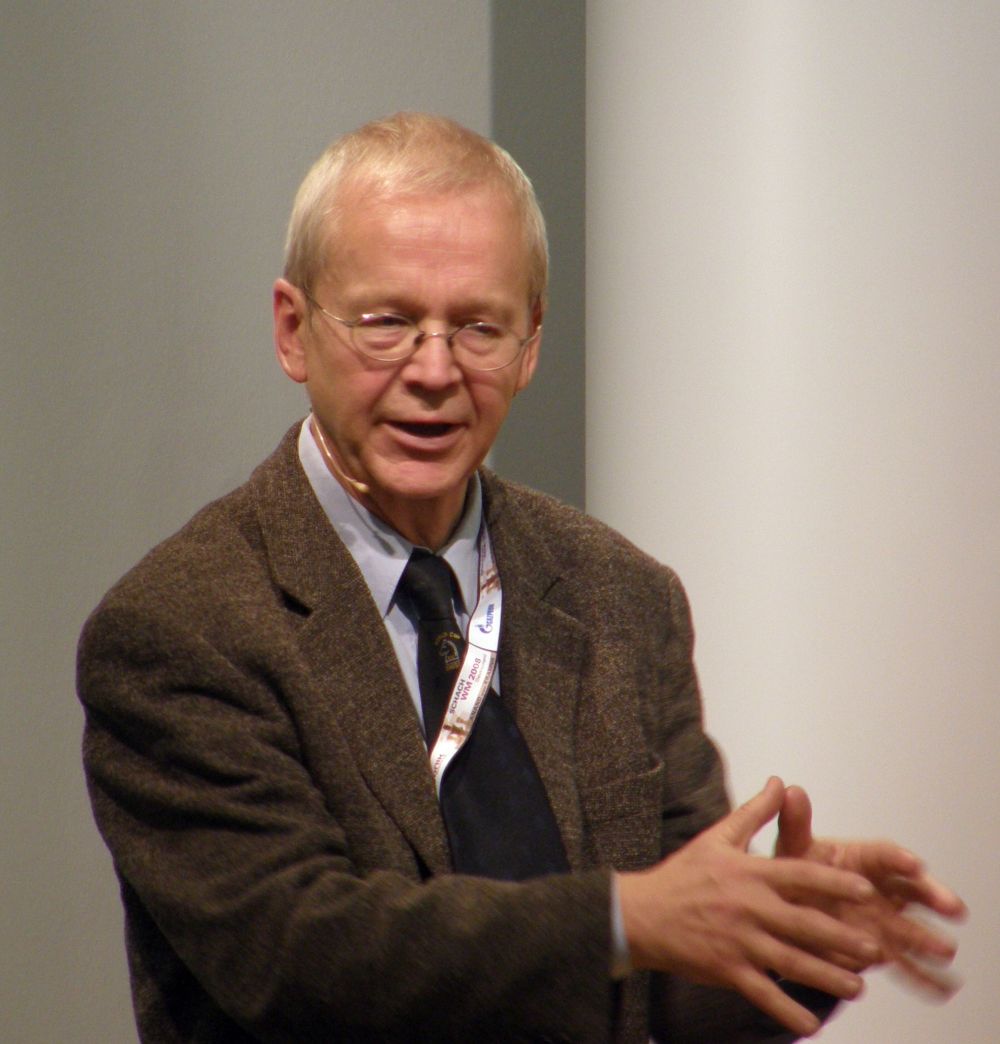
An example: In the late 1970s I asked German grandmaster Helmut Pfleger to come to Bangalore to play a clock simul. He was very interested. I told him that there would be eight players and asked if he wanted a particular rating barrier. Normally when playing a clock simul you do that, you say that the strongest player must not be stronger than 2200 or something. But Helmut wasn't interested in any ratings, he was ready to take on anyone. Well, if it was today, I would invite Helmut to play one on one against a 12-year-old, and he would be struggling. It would be tough. This is how Indian chess has progressed. No question of him playing that kind of clock simul today!
I have realized, after meeting all these young talents, that India is on its way to becoming the super-power of chess. In five or ten years India will dominate chess completely, and I can guarantee, that 20-25% of world's top 100 players will be Indians. And at least three of the top ten players will be Indian. I can even tell you the names. One is Nihal, the other is Praggnanandhaa, and then there's Gukesh. Many of them are actually from Chennai and this is all a result of Vishy Anand becoming a Chess God in this country. He has converted the entire nation into a chess nation.
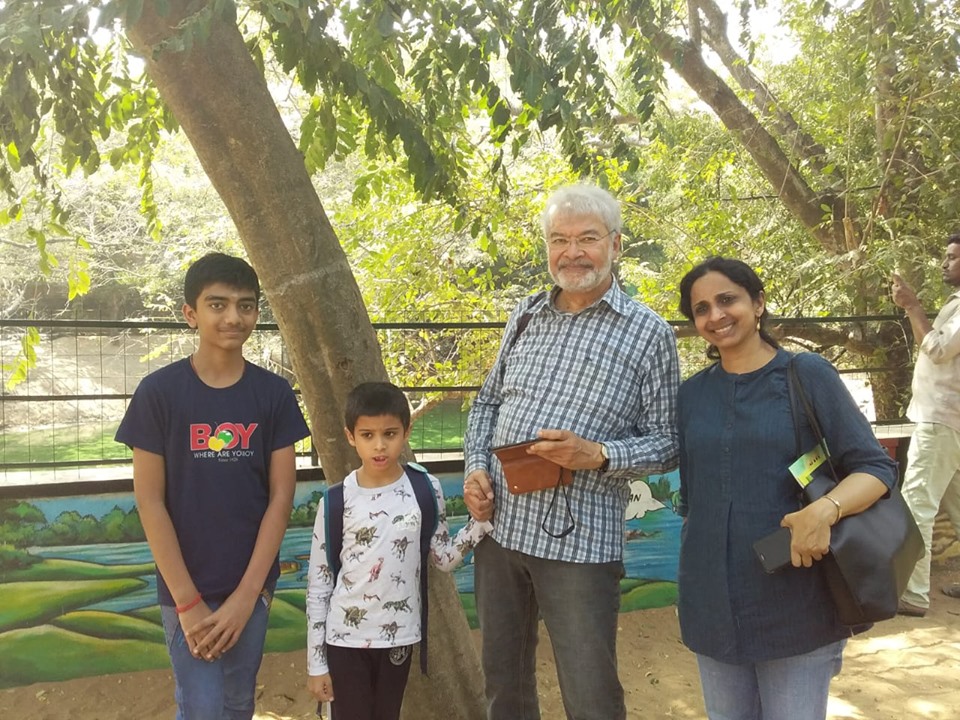
Gukesh, Akhil Anand, Frederic and Aruna, at the Crocodile Park in Chennai
Isn't it shocking that Vishy has turned 50? For me he is still that young boy whom I met in London and who came at our house to stay, playing with my son Tommy, throwing him over his back, and I shouting "Just don't kill the child!" Vishy was a youngster playing in my home, and now he is fifty years old! But I am proud that he is still playing world class chess. No one in the chess world has been able to do this with the exception of Victor Korchnoi. Kasparov stopped playing at the height of his powers, when he was in his 40s. Congratulations Vishy, this is amazing! Keep going as long as you can, and I will keep watching you as long as I can!
Endgames of the World Champions from Fischer to Carlsen
Let endgame expert Dr Karsten Müller show and explain the finesses of the world champions. Although they had different styles each and every one of them played the endgame exceptionally well, so take the opportunity to enjoy and learn from some of the best endgames in the history of chess.
| Advertising |